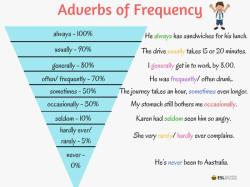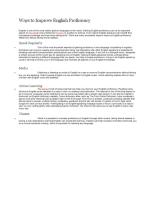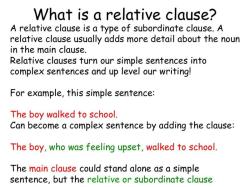How to reduce an adjective clause in a sentence?
Adjective clauses, also known as relative clauses, play a crucial role in providing additional information about nouns in a sentence. Mastering the art of adjective clause reduction can lead to clearer and more concise sentences. This article explores techniques to effectively reduce adjective clauses while maintaining clarity and coherence in your writing.
Introduction to Adjective Clauses
An adjective clause provides essential details about a noun. It begins with a relative pronoun (such as "who," "whom," "whose," "which," or "that") and gives more information to define or describe the noun.
The Significance of Adjective Clause Reduction
Reducing adjective clauses enhances sentence readability by eliminating unnecessary words without compromising the meaning of the sentence. It helps in creating smoother flow and more impactful writing.
Techniques for Adjective Clause Reduction
1. Omitting the Relative Pronoun
You can omit the relative pronoun when it is the object of the adjective clause. For example, "The book that he recommended is insightful" can be reduced to "The book he recommended is insightful."
2. Using Possessive Pronouns
Replace the adjective clause with a possessive pronoun like "his," "her," "its," or "their" to convey the relationship between the noun and the clause. For instance, "The car that belongs to John is fast" becomes "John's car is fast."
3. Changing to Participial Phrases
Convert the adjective clause into a participial phrase by using the present participle (-ing form) or past participle (-ed form) of the verb. For example, "The student who won the competition is talented" can be transformed into "The student winning the competition is talented."
4. Employing Infinitive Phrases
Utilize an infinitive phrase ("to" + base verb) to reduce adjective clauses. For instance, "The book that you want to read is on the shelf" can be changed to "The book you want to read is on the shelf."
Benefits of Adjective Clause Reduction
1. Enhanced Clarity
Reducing adjective clauses ensures that the main point of the sentence is clear and easily understood by readers.
2. Improved Readability
Shorter sentences with reduced adjective clauses are easier to read and comprehend, making your writing more engaging.
3. Conciseness
Adjective clause reduction eliminates wordiness, allowing you to convey the same information in a more concise manner.
Conclusion
Mastering adjective clause reduction is a valuable skill that enhances your writing's clarity and conciseness. By employing techniques such as omitting relative pronouns, using possessive pronouns, and transforming clauses into participial or infinitive phrases, you can create sentences that are not only grammatically correct but also reader-friendly. The ability to simplify complex sentences while retaining their meaning is a powerful tool in effective communication.












